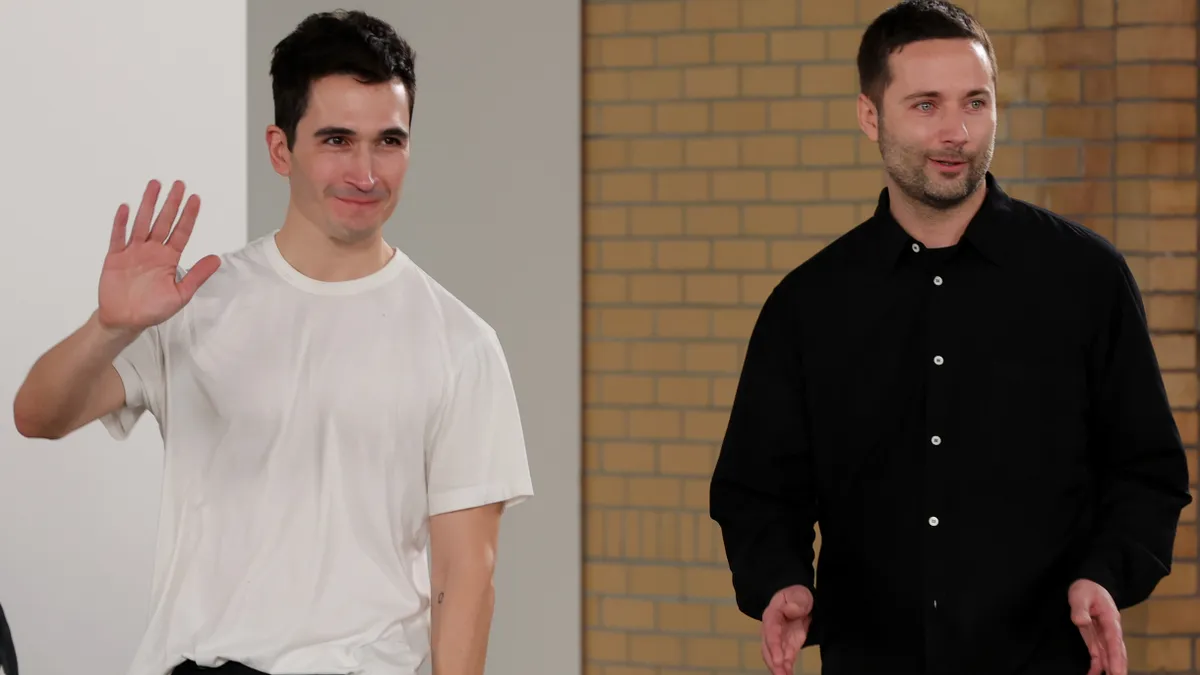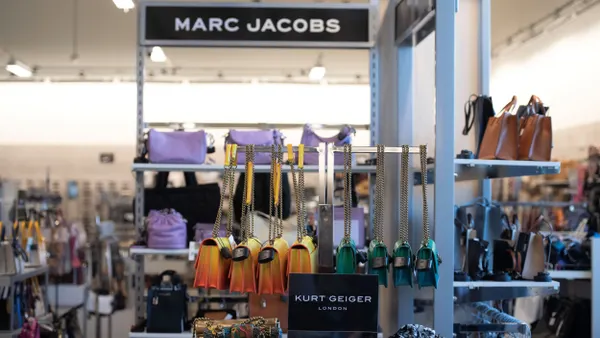Dive Brief:
- Farfetch Limited said Tuesday that it would not announce its Q3 2023 results, which had originally been scheduled for release on Nov. 29.
- The luxury e-commerce platform stated that it “expects to provide a market update in due course” and added it “will not be providing any forecasts or guidance at this time, and any prior forecasts or guidance should no longer be relied upon.”
- Rumors surrounding the company’s future were swirling in the hours before Farfetch canceled its earnings call, based largely on a Tuesday evening story from U.K. newspaper The Telegraph reporting that José Neves, Farfetch’s founder and CEO, was looking to take the company private.
Dive Insight:
The Telegraph article, which did not name sources, said that following “its short but calamitous stint on the New York Stock Exchange,” Farfetch was considering a deal with the "tentative backing" partners such as Alibaba and Richemont.
Last month, Farfetch and Compagnie Financière Richemont received antitrust clearance from the European Commission to move forward with Farfetch’s acquisition of Richemont’s digital luxury retail platform YOOX Net-a-Porter.
Richemont said in a Nov. 29 statement that it “would like to remind its shareholders that it has no financial obligations towards FARFETCH and notes that it does not envisage lending or investing into FARFETCH.”
Farfetch shares were approximately 25% higher following The Telegraph’s reporting, according to an email Tuesday evening from Wedbush analysts Tom Nikic and Matt Quigley. In their comments, they said Neves has supervoting shares that give him more than 75% voting control of the company, and with Farfetch’s company shares down more than 70% as compared to a year ago, “we would not be surprised if Mr. Neves truly does want to take the company out of the public-market spotlight.” They added, “we'll hopefully get at least some clarity on the matter in the not-too-distant future since they are reporting tomorrow AM.”
However, that report never happened.
Richemont said it is “carefully monitoring the situation, including reviewing its options in respect of its arrangements with FARFETCH announced on 24 August 2022, which remain subject to certain terms and outstanding conditions.”
In a further step-back Richemont added, “[n]either Richemont Maisons nor YOOX NET-A-PORTER (“YNAP”) have currently adopted FARFETCH Platform Solutions and they continue to operate on their own platforms” and said, it “will make a further announcement if and when appropriate.”
The Q3 earnings had already been delayed two weeks, based on Farfetch’s Q3 2022 reporting date of Nov. 17.
“Not announcing earnings is a logical move, given that plans to take the company private appear to be confirmed,” Benjamin Bond, principal in the consumer practice of Kearney, said in an email. “Farfetch has struggled in key markets and has also made some risky acquisitions. It’s in need of a business model reset and time to rationalize its organization and investments.”
Bond said any reset would require dramatic change.
“Farfetch's shift towards privatization is a deliberate strategic play to reshape and energize its business,” Bond said. “Going private opens a strategic gateway for Farfetch, allowing it to undertake bold, transformative initiatives without the glare of public market scrutiny.”
This year’s Q3 earnings would also have marked the company’s first report “before the market open in New York,” said Nikic and Quigley. Combined with the delays, the cancellation, the rumors and Farfetch’s almost “$1.4 billion of gross debt outstanding,” the Wedbush analysts speculated that “something has been ‘brewing’ behind the scenes, which may have required time to hammer out before publicly-announcing.”
Nikic and Quigley also suggested that there could be complications surrounding its deal with Richemont. “[T]hey had agreed to pay Richemont in FTCH shares… which have drastically declined in value... Thus, there seems to be a problem: either Richemont has to accept payment in assets that have a drastically lower value, or FTCH has to accept a change to the terms of the deal and accept a greater amount of dilution. Taking the company private could be a way to settle the deal in a compromise that works for both parties.”











